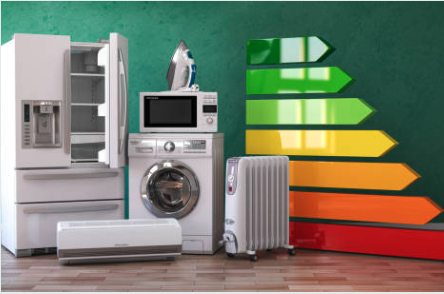About this course
Worldwide electricity consumption is expected to grow by 60 percent by 2030,
driven in part by the increasing use of equipment, appliances, lighting and
other energy using devices.
Energy-efficient equipment and appliances benefit both consumers and
governments; increasing efficiency lowers energy costs, enhances energy
security, helps expand access to energy services and reduces harmful
emissions. In particular, recent evidence shows that
energy efficiency policies have helped halve the energy consumption of
key appliances
in the longest-running appliance efficiency programmes. In the countries with the longest running appliance energy efficiency policies, the policies have contributed to reduction in energy consumption of key appliances by half.
This course aims to prepare participants to successfully advance appliance energy
efficiency policy. It does so by
introducing the fundamentals to effectively design and implement an energy
efficiency policy package
by integrating regulations, information, and incentives to move appliances
towards higher efficiency standards. It was developed by the IEA in collaboration with the SEAD Initiative.

The course consists of seven modules that, together, provide a comprehensive
approach to engage and challenge course participants to consider the
many decisions and options involved in advancing energy efficiency
policy. Participants in the course will, on completion, have a solid
understanding of the
“big picture”
as well as the
tools
to leverage their own expertise to contribute
to advancing energy efficiency in appliances and equipment.
Duration
The course lasts
approximately 25 hours, and each participant is in charge of managing their learning experience.
Target group and participants
This course is
intended for a diverse audience, catering to individuals such as policymakers, congressional staffers, NGO employees, business owners, and concerned citizens. It aims to encourage them to think critically about existing energy efficiency policies and explore avenues for enhancement.
Syllabus
Download and review the syllabus or learning guide of the course
here
We invite you to
join the LinkedIn group
IEA Energy Efficiency Policy in Emerging Economies located here.
This LinkedIn group has been created for alumni of the energy
efficiency in emerging economy training courses to
stay connected,
update one another
on progress and
strengthen the international community of energy efficiency policy
practitioners.
As you take the course, we strongly encourage you to use this LinkedIn group
to ask any questions you may have about its content and energy efficiency in
appliances.
For any technical issues, please contact our helpdesk at: support@abstract-technology.de
Evaluation
Each module has a mandatory evaluation or activity that the participant must perform to complete the module.
From modules 1 to 7 there will be a final mandatory evaluation of the
contents. These evaluations are 5-10 questions with 60 minutes to answer
once it starts. To successfully pass these assessments, participants are
required to provide accurate responses to a minimum of 75% of the
questions. Each participant has 8 attempts to pass each of the
assessments. To pass the course the participant must pass all the
evaluations.
Instructors

Melanie Slade
Senior Programme Manager, Energy Efficiency in Emerging Economies Programme, International Energy Agency
Read the short bio here
Launch of IEA’s Online Training on Appliance Energy Efficiency Policy






